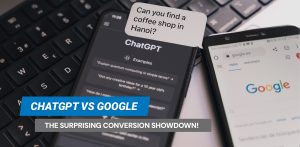If you’ve ever Googled your own product or service and seen a competitor’s ad at the top of the page, you’ve seen PPC in action. Pay-per-click (PPC) advertising—especially on platforms like Google Ads and Bing—can be a powerful way for small and medium-sized businesses to drive relevant traffic to their websites.
But is PPC right for your business? And if so, when should you invest in it?
Let’s explore what PPC is, which types of companies benefit most, and what entrepreneurs need to know to use it effectively.

What is PPC and how does it work?
PPC stands for “pay-per-click,” which means you only pay when someone actually clicks on your ad. These ads appear in search results (Google, Bing), social media (Facebook, Instagram), and on websites via display networks.
With PPC, you bid on specific keywords related to your business. If someone searches for that keyword, your ad may appear—depending on your bid, quality score, and relevance. If they click, you pay.
Who benefits most from PPC?
PPC works best for businesses that:
1. Offer high-margin or high-value services
If your product or service has a strong profit margin (e.g., legal services, medical procedures, consulting), PPC can deliver a great return on investment. A $5 click that turns into a $2,000 client is a win.
2. Serve a niche market
Businesses with specific, well-defined offerings can target keywords with lower competition. Think “commercial kitchen installation” or “boutique dog boarding.”
3. Sell products with clear search intent
If people are actively searching for what you sell—“emergency plumber,” “wedding photographer,” or “custom T-shirts”—then PPC can help you reach buyers at the perfect moment.
4. Need leads quickly
Unlike SEO, which takes months to show results, PPC starts working the moment your ads go live. That makes it a good option for new businesses or seasonal promotions.
5. Have a well-optimized website
Your ad might be great, but it’s your landing page that converts. PPC works best when your website is fast, clear, and designed to turn visitors into leads or buyers.

What types of SMEs succeed with PPC?
Here are some examples of small to mid-sized businesses that can benefit from PPC:
- Local service providers (electricians, plumbers, cleaners)
- Professional services (accountants, lawyers, consultants)
- Niche e-commerce shops
- Educational programs or courses
- Medical and wellness clinics
- Event-based businesses (venues, photographers, caterers)
What entrepreneurs should know before starting PPC
1. Budget matters—but so does strategy
You don’t need thousands of dollars to start. Even $300–$500/month can give you data to work with. But spend it wisely. Focus on 5–10 highly relevant keywords, create clear ad copy, and track performance.
2. Test, measure, and adapt
Great PPC isn’t set-and-forget. It’s test-and-learn. Run multiple ad variations. Track clicks, conversions, and cost-per-lead. Pause what isn’t working and scale what is.
3. Landing pages are part of the puzzle
Sending paid traffic to your homepage isn’t always ideal. Tailor landing pages to match your ads and guide visitors toward a single action: call, sign up, buy, etc.
4. PPC works well with other marketing
PPC is powerful, but it’s not a silver bullet. It works best as part of a broader strategy that includes SEO, email marketing, and content creation. For example, run PPC for competitive keywords, and use SEO for long-term organic traffic.

Final thought: Try PPC if you need smart, scalable growth
PPC can be a fantastic tool for SME owners looking to generate leads, test markets, or scale quickly. The key is to start small, focus on what matters most to your customers, and learn as you go.
If your business has a clear offering, a solid website, and a budget to test with, PPC could be the push that gets you in front of the right people—right when they need you.











